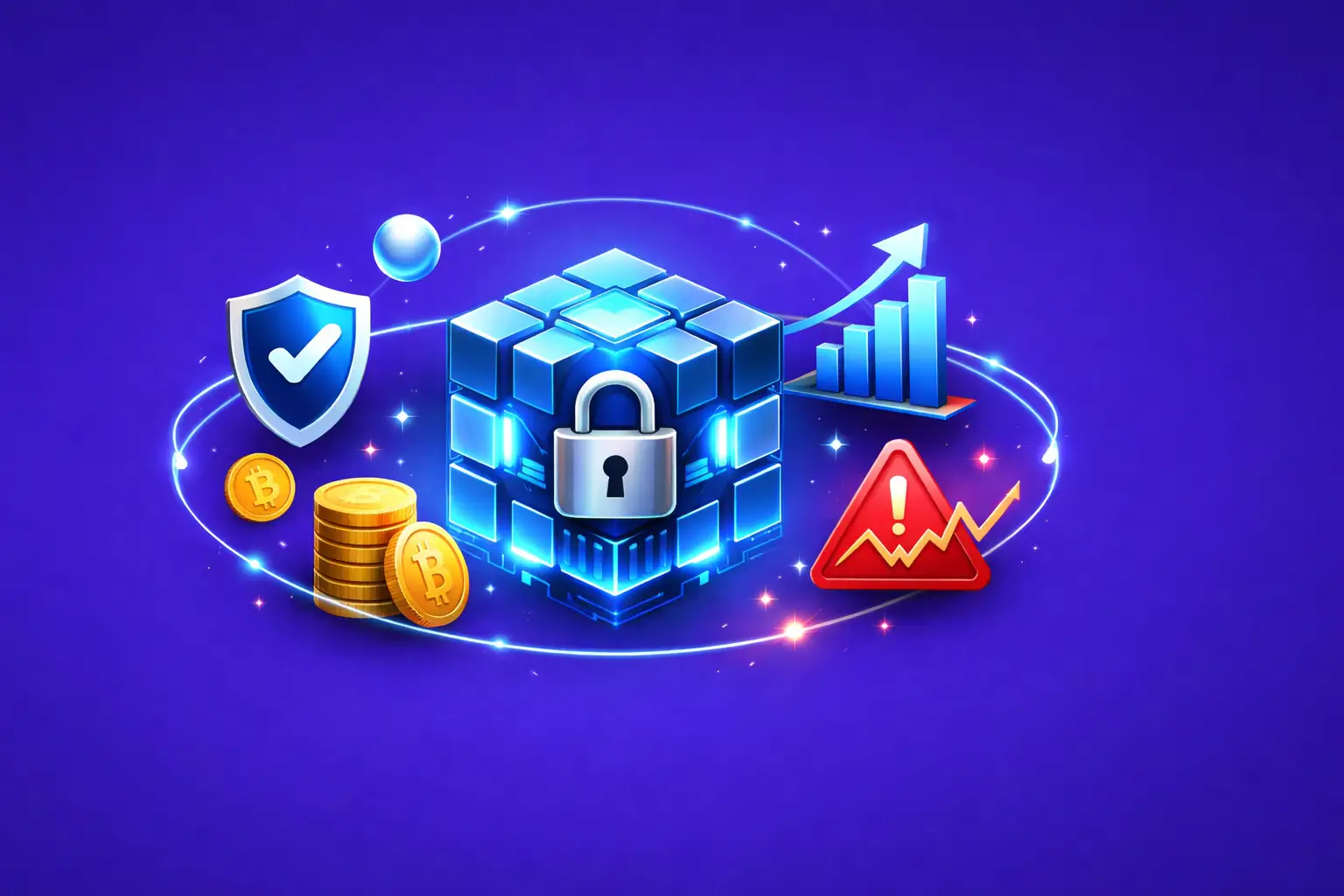Self-certifying identifiers in Web3 are like digital ID cards that you create and control yourself. They use blockchain technology to prove your identity securely without needing a middleman. This means you can manage your online identity and interactions easily, making everything more secure and straightforward. With self-certifying identifiers, you get to control your personal information and access different Web3 services smoothly, all while keeping your data safe from unauthorized access.
Why Use Self-Certifying Identifiers in Web3?
Self-certifying identifiers offer a decentralized approach to managing digital identities. Unlike traditional identity systems that rely on central authorities, self-certifying identifiers are designed to be verified and authenticated without intermediaries. This decentralized nature aligns perfectly with Web3’s core principles, which emphasize user control, privacy, and security.
One key advantage of self-certifying identifiers is their ability to provide a consistent and tamper-proof way of verifying identity across various platforms. This consistency reduces the risk of identity theft and fraud, as users can maintain control over their personal information. Additionally, these identifiers simplify the process of authentication, making it easier for users to access different services without repeatedly entering personal details.
Blockchain Identity Good for Web3 Consulting Solutions
For web3 consulting solutions, integrating blockchain identity systems can significantly enhance the service offering. Blockchain identities are immutable and cryptographically secure, ensuring that user information remains accurate and protected. This feature is particularly valuable for consulting firms that need to manage sensitive client data and ensure compliance with regulatory standards.
By blockchain identity solutions, Web3 consulting companies can provide their clients with more robust security measures and a seamless user experience. These solutions enable businesses to implement self-sovereign identities, where users have complete control over their personal data. This not only improves trust but also aligns with the decentralized ethos of Web3.
Role of Digital Identity in Web3 Consulting Company
-
Enhanced Security
Digital identities provide secure and verifiable user authentication. They help ensure that only authorized individuals can access specific resources or perform certain actions, reducing the risk of unauthorized access or fraud.
-
User Control
Digital identities give users control over their personal information. Users can manage and share their data selectively, enhancing privacy and reducing data exposure.
-
Streamlined Interactions
Digital identities simplify interactions between users and decentralized applications (dApps). With a single digital identity, users can seamlessly interact with multiple services without repeatedly entering information.
-
Trust and Transparency
In a Web3 environment, digital identities contribute to trust and transparency. They enable users to verify identities and the authenticity of transactions, fostering a more reliable and accountable ecosystem.
-
Efficient Onboarding
For Web3 consulting companies, digital identities facilitate easier onboarding of new clients. They provide a secure and efficient way to verify and manage client information, speeding up the setup process.
-
Personalization
Digital identities allow for a more personalized user experience. Web3 consulting companies can tailor services and recommendations based on verified identity data and user preferences.
-
Regulatory Compliance
Digital identities help Web3 consulting companies comply with regulatory requirements. They provide a mechanism for verifying identities and tracking interactions, which is essential for adherence to legal and regulatory standards.
-
Interoperability
Digital identities support interoperability between different Web3 platforms and services. They enable users to access various decentralized services using a single, consistent identity, enhancing the overall user experience.
Why Should Web3 Include Self-Certifying Identifiers?
Incorporating Self-Certifying Identifiers into Web3 is essential for several reasons. Firstly, they address the issue of trust in a decentralized environment. By providing a method for verifying identities without relying on centralized authorities, self-certifying identifiers help build a more trustworthy and reliable Web3 ecosystem. Additionally, they play a key role in decentralized access control, ensuring that only authorized users can access specific resources without needing intermediaries.
Secondly, these identifiers enhance user privacy by minimizing the amount of personal information that needs to be shared. Users can control which aspects of their identity are disclosed, reducing the risk of data breaches and misuse. This level of control is crucial in a decentralized web where privacy and data protection are top priorities.
Lastly, Self-Certifying Identifiers contribute to a more user-friendly experience by simplifying the process of identity verification. Users no longer need to navigate complex authentication systems or manage multiple sets of credentials. Instead, they can rely on a single, self-certifying identifier to interact with various services seamlessly, further strengthening Decentralized Access Control mechanisms across Web3 platforms.
Self-Certification Improve User Experience in Web3
The use of self-certifying identifiers directly improves the user experience in Web3. These identifiers provide a streamlined and intuitive way for users to prove their identity and access services. By reducing friction in the authentication process, self-certifying identifiers enhance user satisfaction and engagement.
Moreover, the security and privacy benefits associated with self-certifying identifiers contribute to a more positive overall experience. Users can interact with Web3 Applications with greater confidence, knowing that their personal information is secure and under their control. This increased trust can lead to higher adoption rates and greater overall success for Web3 projects.
How Can Nadcab Labs Use Identity Verification?
Nadcab Labs as a leading player in the Web3 space, can leverage identity verification through self-certifying identifiers to enhance their offerings and services. By integrating these identifiers into their platforms, Nadcab Labs can provide users with a secure and seamless experience while ensuring that all interactions are backed by verified identities.
For instance, Nadcab Labs can implement self-certifying identifiers in their DeFi platforms to streamline user onboarding and authentication processes. This would not only improve security but also make it easier for users to access and manage their assets. Additionally, self-certifying identifiers can be used to enhance transparency and trust in their blockchain-based solutions, reinforcing Nadcab Labs’ commitment to innovation and user-centric design.
Reviewed & Edited By

Aman Vaths
Founder of Nadcab Labs
Aman Vaths is the Founder & CTO of Nadcab Labs, a global digital engineering company delivering enterprise-grade solutions across AI, Web3, Blockchain, Big Data, Cloud, Cybersecurity, and Modern Application Development. With deep technical leadership and product innovation experience, Aman has positioned Nadcab Labs as one of the most advanced engineering companies driving the next era of intelligent, secure, and scalable software systems. Under his leadership, Nadcab Labs has built 2,000+ global projects across sectors including fintech, banking, healthcare, real estate, logistics, gaming, manufacturing, and next-generation DePIN networks. Aman’s strength lies in architecting high-performance systems, end-to-end platform engineering, and designing enterprise solutions that operate at global scale.






